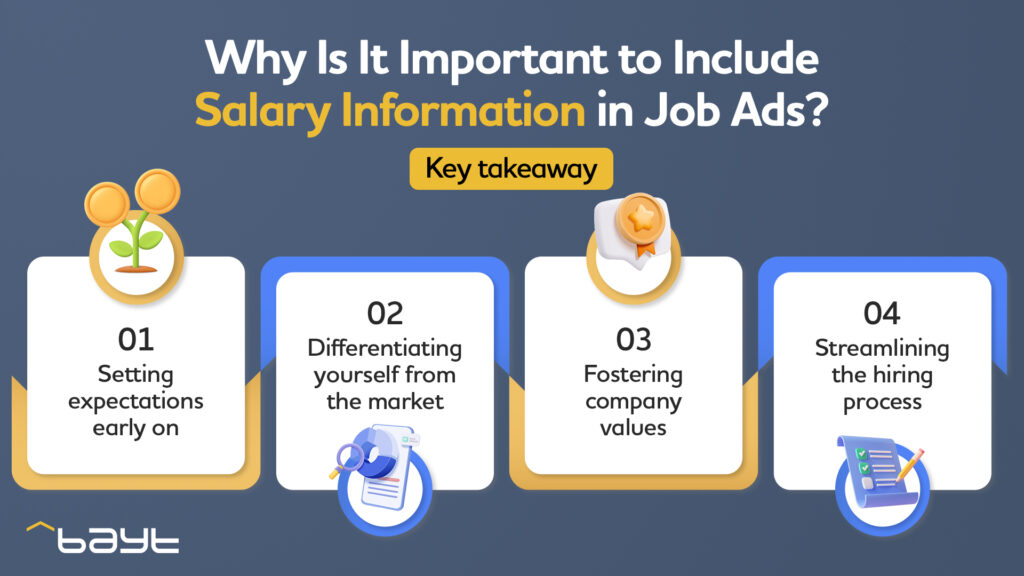![]()
Ready To Start Hiring?
Successful hiring starts with a simple step
Including salary information in job ads can help you match with transparency in hiring and finding the right candidates, but it may also dissuade some job seekers or attract ones that are not the best fit for you. To make this decision, employers need to evaluate their hiring strategy, industry practices for similar roles, and their brand image when deciding whether if salary information should be shared up front.
Salary transparency is one of the 5 ways to boost applications to your job posts. Potential employees gain clarity, and expectations are set up front. Therefore, this upfront disclosure reduces waiting time by drawing individuals genuinely interested in the offer.
Employers can select applicants who meet salary and skill requirements by publicly disclosing salaries. Here, we explore why this practice helps employers, makes hiring easier, and fosters better interactions between employers and candidates.
Here are a few reasons why including salary information in job ads is important
In the quest to secure the best talents, getting off to a strong start is essential. Salary information in job postings plays a pivotal role in achieving just that. It provides candidates with a clear understanding of what to expect, helping them assess whether the position aligns with their financial goals. This upfront disclosure sets the stage for transparent communication, fosters sincerity, and reduces the candidate pool to individuals who are genuinely interested.
Insight: Companies that prioritize transparent communication are more likely to attract and retain top talents, leading to a more engaged and productive workforce.
In a competitive job market, setting your organization apart is critical. Including salary information in job ads not only attract candidates through job posts but also showcases your commitment to transparency and respect for applicants’ time. Furthermore, by publicly disclosing the salary range, your organization demonstrates a commitment to fair compensation, which can retain the interest of qualified candidates.
Insight: Companies that openly disclose their salary information are viewed more favorably by job seekers, who appreciate the honesty and fairness in compensation practices.

Transparency is more than just practical; it’s an embodiment of your company’s core values. Sharing salary information conveys your commitment to fairness and integrity from the very beginning. This resonates with candidates who value honesty and transparency and sets the tone for an honest and trustworthy employer-employee relationship.
Insight: Companies that live their core values, such as fairness and integrity, are more likely to attract employees who align with these values and contribute positively to the organization’s culture.
Efficiency is a top concern in talent acquisition, and including salary information in job ads plays a pivotal role in streamlining the hiring process. By openly stating the compensation range, you attract candidates whose expectations align with the offer. This not only narrows the candidate pool but also expedites the evaluation and selection process, ultimately reducing the time to hire new candidates.
Insight: Salary transparency reduces the time to hire new candidates. Furthermore, it improves efficiency within the evaluation, interview, and final decision-making phases.
Well, it’s not that straightforward.
In the MENA region’s dynamic job market, the strategic inclusion or exclusion of salary information in job ads can be the key to attracting and retaining the top talent you seek.
Including salary information in job ads can enhance transparency, attract the right talent, and demonstrate commitment to fairness.
Yet, it’s a nuanced practice that may also deter some candidates and affect an organization’s competitiveness in the market. Companies should carefully weigh the pros and cons to make informed decisions that align with their recruitment goals and values.
![]()
Successful hiring starts with a simple step